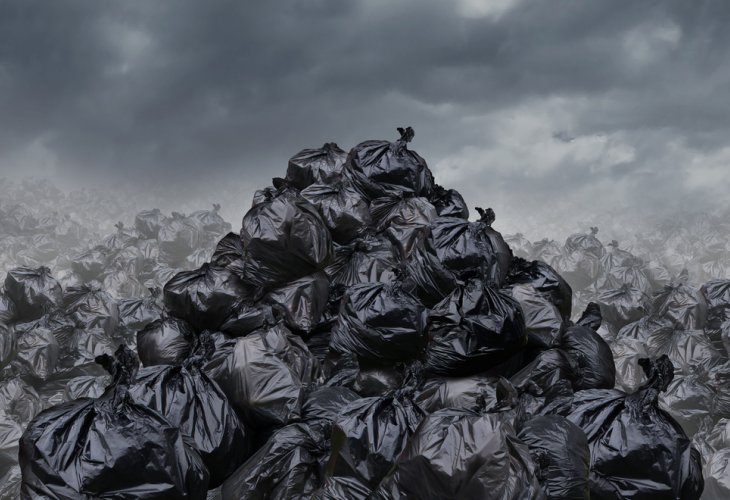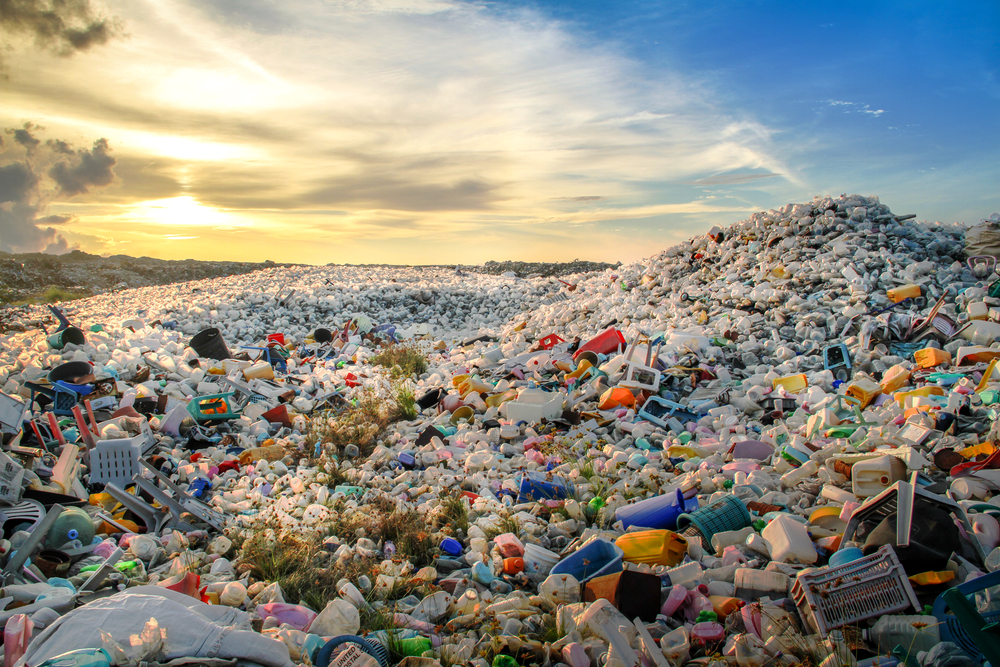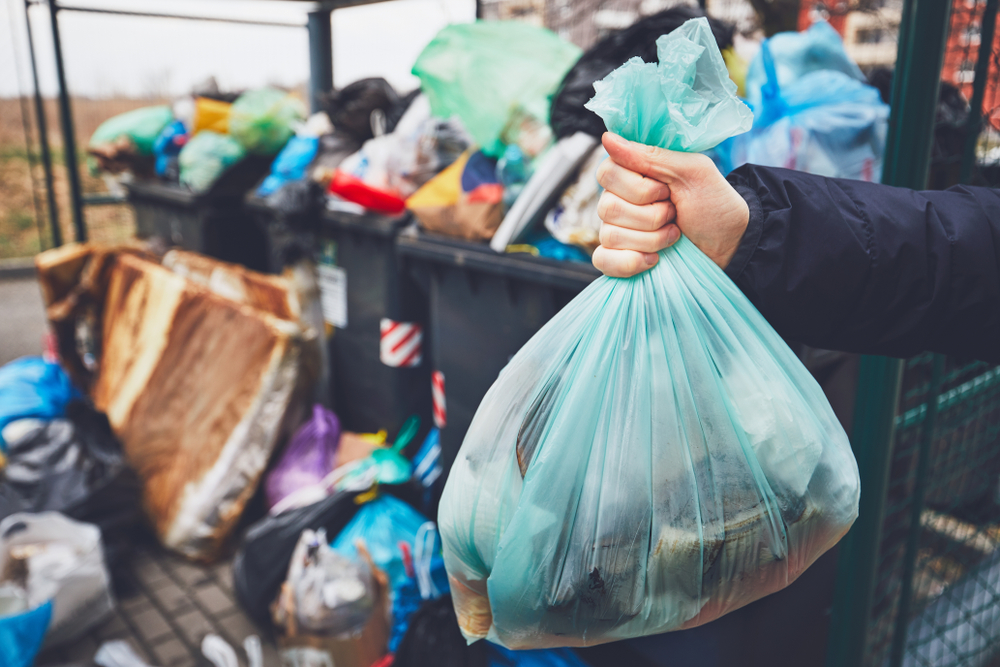Exploring Global Trash Trends and Surprising Waste Facts
Uncovering what our garbage tells us, Israel's annual trash output, and what the future holds for global waste by 2050.
 (Photo credit: shutterstock)
(Photo credit: shutterstock)The First Clean City
Jerusalem was the first clean city in the world. This was because garbage heaps were home to unclean creatures, both living and dead, and the sages feared that these creatures might defile those entering the Temple and consuming holy offerings. Therefore, they prohibited the disposal of garbage on the streets of holy Jerusalem. Another rule banned planting gardens and orchards in Jerusalem’s streets to prevent the unpleasant odors from disturbing pedestrians.
 (Photo credit: shutterstock)
(Photo credit: shutterstock)
The First Country to Regulate Waste Disposal
The first country to organize waste disposal was the Muslim empire that ruled Spain (1400-1700 CE). The first cities to have waste collection facilities were Cordova and Al-Andalus.
Global Trash
Residents of the world produce 3.28 billion tons (3,280,000,000 tons) of waste each year, and in recent decades, there has been a significant increase in the quantity of waste requiring special treatment, such as plastics and other non-biodegradable materials. The increase in waste is particularly severe in developing countries, where there is a mass migration of villagers to major cities, a sharp rise in living standards, and a rapid shift to overconsumption.
 (Photo credit: shutterstock)
(Photo credit: shutterstock)
The Trash Giants
Humanity produces so much waste that we have created a new geological layer that experts call the technosphere — a layer mainly composed of objects manufactured by human technology.
The global average is 1.2 kg of waste per person per day on Earth. Waste production is closely linked to the standard of living and luxury consumption. Residents of developed countries such as New Zealand produce 3.68 kg of waste per day. Ireland produces 3.58 kg, and the US produces 2.58 kg per capita.
Surprisingly, the biggest producers of waste are small island nations like Trinidad, Antigua and Barbuda, and Saint Kitts and Nevis — 5.5 kg per capita daily!
At the bottom of the list are residents of poor countries like Ghana — 0.09 kg, and Uruguay — 0.11 kg of daily waste per capita.
In Israel, over 6 million tons of waste are sent to landfills every year, one-third of it being food scraps and another third plastic and paper. On average, this amounts to 1.7 kg per person per day, varying from place to place. Economic status, which leads to higher consumption, is one factor influencing this amount.
In terms of volume, the waste we produce could fill dozens of tall buildings like Tel Aviv's Azrieli Towers. It's quite challenging to hide or dispose of such towers. Most of this waste (more than 80%) is buried in landfills.
Waste in the World Until 2050
The World Bank published a report warning that without urgent policy changes, global waste will grow by 70% by 2050. According to the report, global waste production is expected to rise to 3.4 billion tons over the next 30 years, compared to 2.01 billion tons in 2016.
The report emphasizes that a significant portion of waste accumulates untreated, especially in developing countries, causing local and global damage such as air, soil, and water pollution, with a particular focus on pollution resulting from plastic waste.
A World Filling Up with Waste
Modern humans are overwhelmed with materials and products. We buy more and more, and throw away more and more… - use and throw, use, and throw.
Food scraps, bottles and packaging, worn clothes, furniture, toys, used batteries, cleaning materials, building materials, and more - all the products and materials we throw away, which are in solid state, are called solid waste.
Year by year, there are more people in the world, and each of them buys more and throws away more. Thus, the amount of solid waste in the world grows year by year.
All the waste we discard into the environment remains there. Various waste components decompose over time, some slowly and others more quickly. Some of them will remain in the environment long after us, after our grandchildren, after their grandchildren...
While the waste remains in the environment, it continues to pollute it - ruining the landscape, endangering wildlife, polluting the water, the soil, and the air.
 (Photo credit: shutterstock)
(Photo credit: shutterstock)
Waste Prevention Laws
Over the years, Israel has enacted laws aimed at preventing environmental pollution from waste and maintaining cleanliness. Among them:
* Law against Littering in Public: No person shall discard waste, construction waste, or vehicle scraps in the public domain or from the public domain into private property, nor shall they soil the public domain.
* Deposit Fee for Waste Disposal (part of the "Cleanliness Preservation" law) came into effect on 1.7.2007. The purpose of the deposit fee is to include in the cost of waste disposal the price we must pay due to environmental damage, such as air pollution, water pollution, the cost of waste transport, etc. This fee will encourage entities responsible for waste removal to find alternative waste disposal solutions.
* Law for Tire Removal and Recycling.
* Deposit law.
Secrets in Waste
Garbage dumps reveal much about local culture. They reflect eating and consumption habits, the economic status of local residents, and preferences in various areas.
 (Photo credit: shutterstock)
(Photo credit: shutterstock)
Energy from Waste
After decades of waste being a nuisance to be disposed of, a modern approach has developed that aims to turn waste into a resource from which raw materials can be extracted, new products can be manufactured, and clean energy can be generated.
Recycling Around the World
In Switzerland, recycling is free. In contrast, disposing of non-recyclable waste costs money. Trash disposed of there must be placed in bags with a special sticker. Each sticker costs at least one euro (about five shekels). Thus, people prefer separating trash into recycling bins rather than paying to dispose of regular trash.
In Rome, Italy, all residents with waste separation bins nearby (within 500 meters) are required to separate their waste. The fine for not separating one’s waste is 619 euros (about 3,000 shekels). Recently, the city of Rome installed 2,500 waste separation bins in different colors: green for food scraps; white for paper waste; blue for plastic waste.
In Germany, there is no law requiring citizens to separate their household waste, but according to a survey, 90% of Germans are willing to do so even if not obliged.
In Greece, the recycling rate is the lowest in Europe. Yet, near Athens, the largest recycling plant on the continent was built. Ironically, this plant isn’t operational due to the collapse of the nearby garbage heap.

